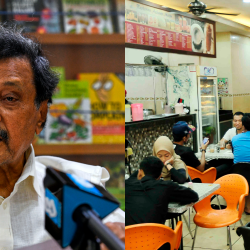UPDATE 3-Miami rolls back restaurant dining as U.S. coronavirus deaths top 130,000
(Adds positive rates, California and Texas hospitalizations climb)
By Lisa Shumaker and Zachary Fagenson
July 6 (Reuters) - Florida's greater Miami area became the latest U.S. coronavirus hot spot to roll back its reopening, ordering all restaurant dining closed on Monday as COVID-19 cases surged nationwide by the tens of thousands and the U.S. death toll topped 130,000.
Restaurants and bars also were singled out for a weekend crackdown on coronavirus enforcement in California, where hospitalizations for the highly contagious respiratory virus have jumped 50% over the past two weeks.
For an eighth straight day, Texas registered an all-time high in the number of people hospitalized with COVID-19 at any one moment, up more than 500 admissions from the day before to nearly 8,700.
California, Texas and Florida are all among two dozen states reporting high infection rates as a percentage of diagnostic tests conducted over the past week, an alarming sign of a virus still spreading largely unchecked throughout much of the country.
The Miami-Dade County emergency restaurant closure was ordered on Monday by Mayor Carlos Gimenez, the top official in a metropolitan area that has reported some 48,000 COVID-19 infections to date among its 2.8 million residents.
The move reimposing rules to permit carry-out and delivery service only, just weeks after eateries began welcoming customers back to their favorite tables, booths and patios, left struggling restaurateurs even more worried about the survival of their businesses.
"We're burned out emotionally, we're burned out financially, and we're burned out from the trauma of seeing everything that's happening," said Karina Iglesias, a partner at the popular Spanish restaurants Niu Kitchen and Arson in downtown Miami.
Michael Beltran, chef-partner at Ariete Hospitality Group, which owns a handful of other popular Miami restaurants including Taurus, was struggling to come to terms with having to tell most of his 80 employees - many of whom were rehired for reopening - that they would again be unemployed.
"From what they told me, I did the proper things (to reopen), and now we're at this point," Beltran said.
RISING CASES AND 'POSITIVITY'
Florida, one of the last states to impose mandatory workplace closures and among the first to try relaxing them, reported more than 6,000 new cases on Monday.
COVID-19 infections are on the rise in 39 states, according to a Reuters analysis of cases over the past two weeks, with the country as a whole averaging some 50,000 new cases nearly every 24 hours in recent days. Sixteen states have posted record daily case counts so far this month.
More states are also reporting a troubling increase in the percentage of COVID-19 diagnostic tests that come back positive - a key indicator of community spread that experts refer to as the rate of "positivity."
Two dozen states, mostly in the South and West, have averaged positivity rates over the past week exceeding 5%, a level that the World Health Organization considers to be concerning, data collected by Reuters shows.
Several states were averaging double-digit rates and climbing, including Arizona at 26%, Florida at 19% and Mississippi at 17%.
California's positivity rate has also risen over the past two weeks. But Governor Gavin Newsom on Monday cited a 50% two-week spike in hospitalizations - with 5,790 COVID-19 patients currently admitted - as an impetus for beefed-up enforcement actions during the Fourth of July holiday.
ENFORCEMENT AND ROLLBACKS
He said state regulators visited nearly 6,000 bars and restaurants over the weekend to ensure compliance with rules barring indoor seating, or the reopening of any establishment that normally serves alcohol without food.
The nationwide loss of life from COVID-19 surpassed 130,000 on Monday, and the U.S. Centers for Disease Control and Prevention forecast that the death toll could reach 160,000 later this month.
The disquieting surge in new cases has prompted many local leaders to slow down or roll back business reopenings in hopes of curbing infection rates that have started to overwhelm hospitals in some areas.
"We can tamp down the spread if everyone follows the rules, wears masks and stays at least six feet (2 m) apart from others," Gimenez said in a statement announcing his emergency order, which also closed ballrooms, banquet halls, party venues, fitness centers and short-term housing rentals.
Colleges and universities have likewise been forced to adjust their reopening plans. Harvard University said on Monday that all undergraduate fall semester classes would be taught online and only 40% of the undergraduate student body would be permitted to live on campus.
As the cumulative U.S. case total nears 3 million - about a quarter of all known infections worldwide - scrutiny of President Donald Trump's handling of the crisis has intensified.
Trump, who has suggested scaling back COVID-19 testing to keep the number of reported cases in check, said in a speech on Saturday that 99% of U.S. coronavirus infections were "totally harmless," but offered no evidence to support his assertion.
(Reporting by Lisa Shumaker, Doina Chiacu, Peter Szekely, Maria Caspani, Gabriella Borter, Zachary Fagenson and Sharon Bernstein; Writing by Gabriella Borter and Steve Gorman; Editing by Howard Goller, Bill Berkrot and Peter Cooney)






